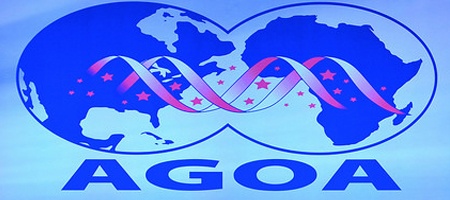Feedback Request on AGOA
This post originally appeared on the Africa Syndicate Blog on March 31, 2016.
What’s Your Experience with the African Growth and Development Act (AGOA)?
 The African Growth and Opportunity, originally enacted in 2000, was renewed in the summer of 2015 for an additional ten years until September 30, 2025. It is described by the U.S. as the cornerstone of the U.S. economic relationship with sub-Saharan Africa and the most generous trade preference program offered by the U.S. While it is good news that AGOA was renewed, at the same time both the U.S. and sub-Saharan countries have entered into trade agreements with third countries and other developed countries such as the European Union and Canada have migrated away from trade preference programs to reciprocal trade agreements. This has led the U.S. to consider policies and approaches beyond preferences for sub-Saharan Africa. Both the Administration and the Congress in reenacting AGOA have expressed an interest in exploring such changes.
The African Growth and Opportunity, originally enacted in 2000, was renewed in the summer of 2015 for an additional ten years until September 30, 2025. It is described by the U.S. as the cornerstone of the U.S. economic relationship with sub-Saharan Africa and the most generous trade preference program offered by the U.S. While it is good news that AGOA was renewed, at the same time both the U.S. and sub-Saharan countries have entered into trade agreements with third countries and other developed countries such as the European Union and Canada have migrated away from trade preference programs to reciprocal trade agreements. This has led the U.S. to consider policies and approaches beyond preferences for sub-Saharan Africa. Both the Administration and the Congress in reenacting AGOA have expressed an interest in exploring such changes.
The U.S. Trade Representative’s Office (USTR) held a hearing on January 28, 2016, to look beyond AGOA. The hearing is part of a comprehensive analysis being undertaken by USTR to examine how to deepen the U.S. trade and investment relationship with sub-Saharan Africa. USTR Ambassador Michael Froman testified at the hearing describing the 2015 renewal of AGOA as “the longest extension in the program’s history, providing African partners a unique opportunity to maximize their gains under the program and creating the greater certainty and predictability that enable businesses to make long-term investments and develop supply chains.” While noting the importance of AGOA to sub-Saharan Africa, Ambassador Froman also noted the importance for the U.S. to develop new trade policies for “the new Africa given the spectrum of countries that now make it up and the changing global trading system of which it is part.”
The law renewing AGOA, the Trade Preferences Extension Act of 2015, requires USTR to publish a report no later than 1 year after the date of enactment, and biennially thereafter, on the trade and investment relationship between the U.S. and sub-Saharan African countries and in regard to the implementation of AGOA. Specifically, the report is to cover: (1) a description of the status of trade and investment between the U.S. and sub-Saharan Africa, including information on leading exports to the U.S. from sub-Saharan African countries; (2) any changes in eligibility of sub-Saharan countries during the period covered by the report; (3) a detailed analysis of whether each such beneficiary sub-Saharan African country is continuing to meet the eligibility criteria for designation as a beneficiary developing country; (4) a description of the status of regional integration efforts in sub-Saharan Africa; (5) a summary of U.S. trade capacity building efforts; and (6) any other initiatives related to enhancing the trade and investment relationship between the U.S. and sub-Saharan African countries. The first report is due to Congress this June.
Later this year during the week of September 19, 2016, in conjunction with the UN General Assembly, Bloomberg Philanthropists and the U.S. Department of Commerce will co- host in New York City the second U.S.-Africa Business Forum, a day focused on increased trade and investment between the U.S. and African nations. The intent of the Forum is to build on the progress of the inaugural Forum held during the 2014 U.S.-Africa Leaders’ Summit to further develop trade and business opportunities between the U.S. and Africa. The Forum will focus on U.S. private sector engagement in Africa in sectors like finance and capital investment, infrastructure, power and energy, agriculture, consumer goods, health care, and information communication technology. Information on the Forum can be found at www.usaafricabusinessforum.org
These developments highlight the need to be engaged on AGOA utilization and also the broader U.S.-Africa trade and investment relationship. That is why we are reaching out to you. We want to know what your experience has been with AGOA. Has it benefitted you? If not, why not? Please share your stories with us. It is important to share these stories with USTR as it prepares its report to the U.S. Congress and in preparation for the upcoming U.S.-Africa Business Forum. PLAD can do that. Let’s make the most out of these opportunities to give U.S. Government officials and business leaders feedback on AGOA and trade and investment between the U.S. and Africa. Ten years is a good extension for AGOA but time has the habit of marching on so your feedback is critical to the success of AGOA, as renewed, and the development of a successful U.S.-Africa trade and investment relationship.
